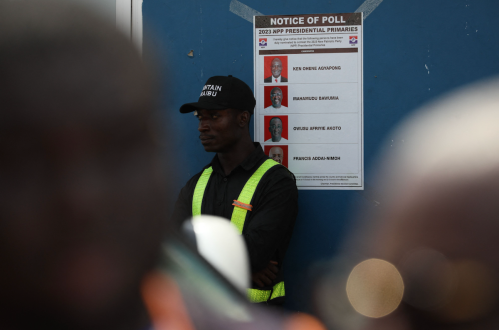At this week’s Group of 20 summit, President Obama must reaffirm to the world that Washington has no intention of forming or even moving toward an exclusive “G-2” relationship with China. It is, of course, important that the United States deepen the constructive and candid ties established between Chinese President Hu Jintao and former president George W. Bush. The Obama administration’s willingness to build on that record is heartening, and it is in the interest of all nations that we broaden the U.S.-China relationship. We will, however, pay a heavy price with our long-term friends and allies in Asia by referring to increased economic cooperation with China as a new G-2.
World Bank President Robert B. Zoellick and the bank’s chief economist, Justin Yifu Lin, recently wrote on this page that without a strong U.S.-China G-2, the G-20 would disappoint. Only through an unprecedented level of bilateral economic cooperation, they argue, can the global economy recover. They are correct that a closer U.S.-China partnership is essential to the global economy at this precarious moment. But labeling the overall U.S.-China relationship the “G-2” would have worrisome geostrategic implications throughout Asia and beyond.
Some Westerners argue that China’s grand strategy is to become the region’s preeminent power by finding ways to undermine the United States’ alliance relationships in Asia. Some in the Chinese military surely harbor such dreams, but this is unlikely to be a serious consideration in Beijing. A more realistic Chinese goal may be to create a partnership with the United States in which our Asian allies, such as Japan, South Korea, Australia, Thailand and the Philippines, are relegated to a subordinate status and the United States and China would share Asian preeminence — at least for a time.
The G-2 moniker worries Asians for just this reason. From Japan to India, there are concerns that America’s search for a solution to its worst economic crisis since the Great Depression may lead the Obama administration into not only expanded strategic economic and political dialogues with China but a full-blown strategic partnership. As the center of gravity of U.S. economic interests moves from Europe to Asia, they worry, the United States could become enamored of a “China first” approach. Notably, the career Indian diplomat M.K. Bhadrakumar recently lamented that “the U.S.-India relationship is entering a phase of lull” while Washington engages in “Chinamania.”
Secretary of State Hillary Clinton’s first trip to Asia — in which she visited Japan, Indonesia and South Korea before going to Beijing in February — sent reassuring signals to our allies, but more will be required. America’s alliance relationships in Asia have served us well since World War II, and we have far more in common with our allies and the region’s democracies than with China. While we have made progress cooperating with Beijing on such key strategic concerns as North Korea, there are many other issues, including the situations in Darfur, Burma and Iran, where our policies remain far from complementary. China’s latest vilification of the Dalai Lama underscores its poor record on human rights and religious freedom. And the Chinese harassment of a U.S. Navy survey ship in the South China Sea last month demonstrated how Beijing’s assertion of its growing military reach will raise vexing issues regarding the role of U.S. naval power in the Pacific Ocean.
For its part, China can do more to demonstrate its commitment to a deeper relationship with the United States and its willingness to step up to global responsibilities. China should play a more proactive role in the fight against al-Qaeda in Afghanistan and Pakistan, particularly given its geographic proximity and its own concerns about terrorism. President Hu should be prepared to tell President Obama this week exactly how China can help the United States implement its new Afghanistan-Pakistan strategy. Rather than modest amounts of aid, Hu might offer substantial access to western China as an alternate supply route for the international forces involved in the war effort. Moreover, quick agreement on concrete steps for bilateral cooperation on energy security and climate change would demonstrate that China plans to be a bold leader in the developing world on these issues.
It has been 30 years since formal diplomatic relations were established between Beijing and Washington. While greater cooperation with China on transnational issues from economic stabilization to energy security will make these problems more manageable, none of the great challenges of our time can be navigated without major contributions from other important Asian countries. China’s neighbors would interpret a U.S.-Chinese G-2 as the most important strategic realignment since the end of the Cold War, and it would jeopardize our relationships with those countries.
The Brookings Institution is committed to quality, independence, and impact.
We are supported by a diverse array of funders. In line with our values and policies, each Brookings publication represents the sole views of its author(s).



Commentary
Op-edHow a “G-2” Would Hurt
April 2, 2009